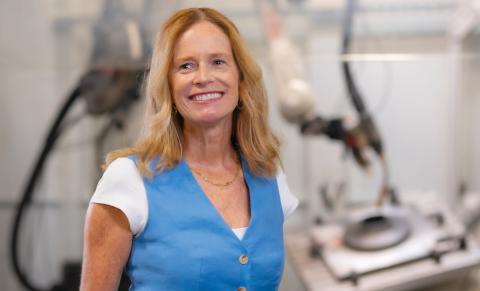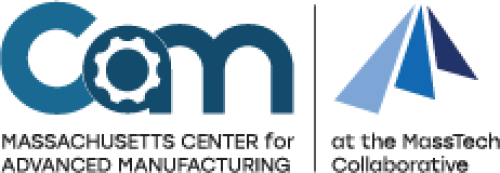
In the heyday of the Industrial Revolution, Massachusetts was known as a hub for manufacturing innovators, including a group of entrepreneurs who founded the Worcester County Free Institute of Industrial Science (now known, of course, as WPI). As the director of the Center for Advanced Manufacturing (CAM) at the Massachusetts Technology Collaborative, Christine Nolan ’88 is helping the next generation of innovators recapture that magic, connecting the state’s 7,000 manufacturers with funding and resources needed to stay competitive and create jobs.
“This really is my dream job. It marries both worlds—my manufacturing background as well as my community engagement background,” she says. “I’m inspired by manufacturers’ passion for creating things, solving problems, and working through tough challenges. My job is to ask, ‘How can I use the resources available at the state level to help them succeed?’”
The ability to bring people together, both formally and informally, is one of Nolan’s superpowers. In her 10 years at the Massachusetts Technology Leadership Council, she built communities of interest in the tech industry, whether executive level peer groups or technology clusters such as robotics, cybersecurity, or big data (all before the time of AI). The communities built, strengthened, and encouraged regional collaboration.
In 2012, she co-founded Boston Tech Jam, a fun event to celebrate the successes of the industry that attracted as many as 8,000 participants to Boston’s City Hall Plaza; three years ago she launched the Mass Manufacturing Mash-Up, a similar networking event at Worcester’s Polar Park that has been so successful it will move to Gillette Stadium in September to increase capacity.
CAM, which she has directed for the past three and a half years, has been an integral force in the formation of a 170-member regional consortium to reshore and expand the country’s global leadership in microelectronics. To date, the consortium has received a $19.7 million award from the Department of Defense to leverage the region’s strengths in the areas of quantum computing, AI hardware, Secure Edge/Internet of Things, 5G/6G, electromagnetic warfare, and commercial leap-ahead technologies.
“Seeing this consortium come together from across academia, industry, and multiple state governments has been very impressive,” she says, noting that WPI played a leading role in the effort. Connecting large defense manufacturers, like Raytheon, with the state’s smaller start-ups creates synergies that enhance competitiveness across the entire manufacturing ecosystem.
